Electrical Engineering Expo Highlights Student Innovation
Come the new year, many of us will hit the gym full of resolutions to undo weeks of holiday overindulgence. But what if we could save ourselves the situps with smart utensils that stopped us from eating too much in the first place?
Spooony, a sensor-equipped spoon and app developed by Tvisha Gangwani MS’18 Sing Pou Lee MS’19, and Jan-Felix Schneider MS’18 aims to do just that, using embedded devices and a neural network to identify foods, approximate nutritional information, and share updates on caloric consumption. When a user reaches the limit programmed into their own customizable diet plan, LEDs on the spoon begin flashing.
This clever concept was just one of nearly 50 projects served up by electrical and computer engineers at the annual EE/CE Student Project Expo, held in Low Library on December 6. Spanning the internet of things, deep learning, and optics, the event showcased a wide range of talented Columbia Engineering master's students.
Additional highlights included a networked baby crib that monitors toddlers, systems for preventing mail theft, an automated personal trainer, and a wearable soft exoskeleton for outpatient rehabilitation. Other students presented research findings, reporting back on efforts to model the optics of various lenses, malfunctioning human eyes, and potential medical devices, as well as the potential of parallel computing and advanced graphic processing units (GPUs) across a range of contexts.
Students shared their work with peers, colleagues, and a panel of faculty judges including Christine Hendon, Zoran Kostic, Xiaofan (Fred) Jiang, and James Teherani, who awarded a total of $1000 in prizes.
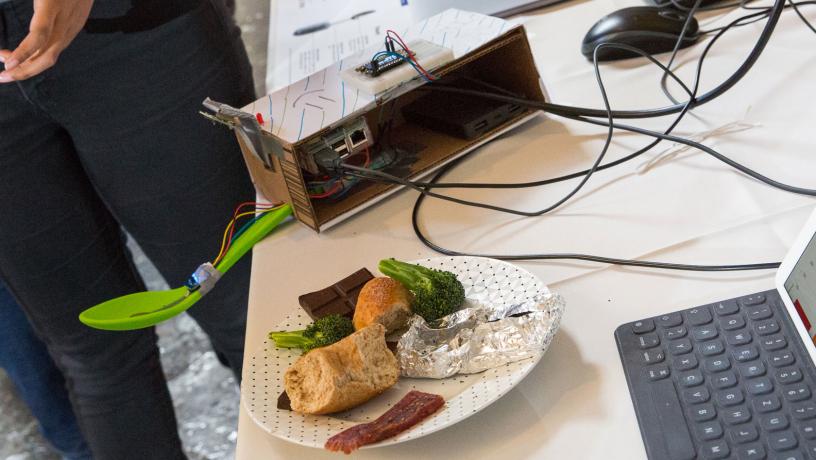
Spooony, a sensor-equipped spoon and app, monitors caloric consumption.
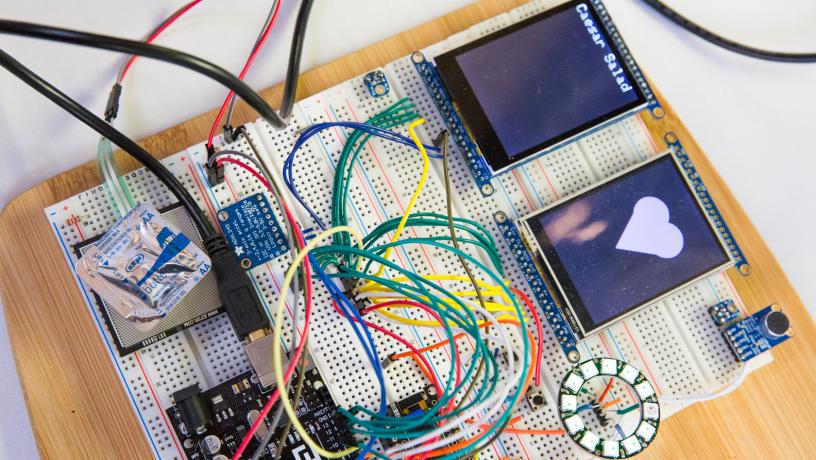
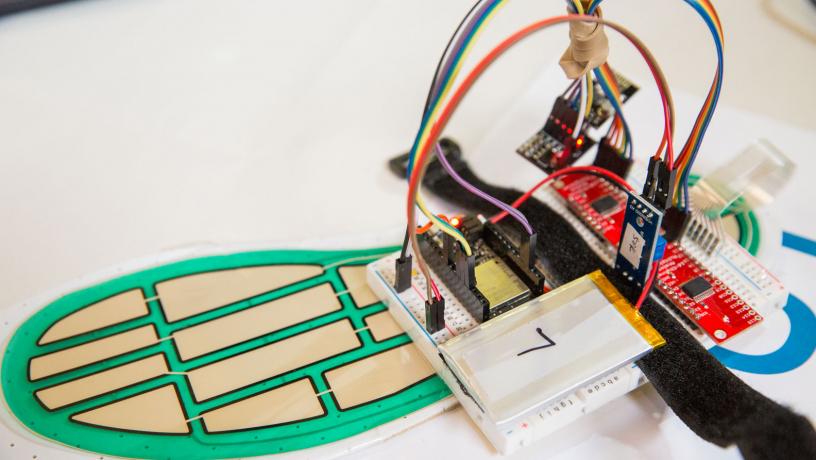
The inner workings of FootFit, a project from Mengyu Liu, Mengchao Hao, and Jiyuan Yang that senses how weight is distributed in a user's gait.
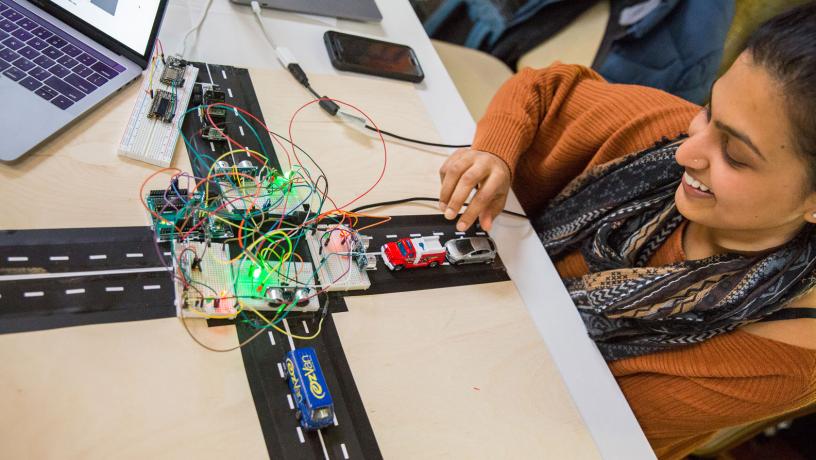
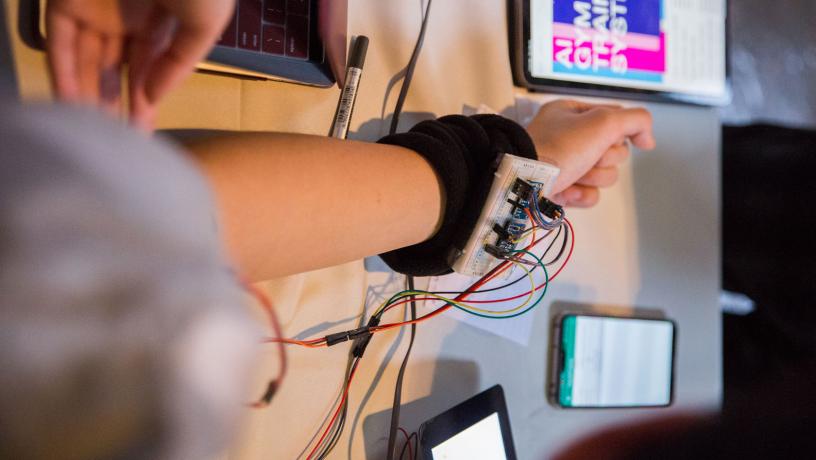
A demonstration of the AI Gym Trainer System from Yuanji Huang, Kunjian Liao, and Yun Wang.
Spooony ultimately took top honors, winning first place and $300. Two projects took second place and received $200 each: Disparity Map Creation Using Mutual Information on a GPU, from Abhyuday Puri MS’19 and Rahul Vallivel MS’19, which helps stereo camera systems perceive depth; and Zoom Microscope Based on Focus-Variable Lens, research from Rui Chen MS’19 that examines how novel lenses can extract additional information from microscopic images.
Three projects garnered third place and $100 each: Smart Baby Crib, from Yiqi Sun MS’19, Bingyao Shi MS’19, and Yixin Man MS’19; research from Haiqui Yang MS’19 on optimizing the performance of wide-angle lens systems; and a system developed by Zixiao Zhang MS’18 and Yilin Lyu ’18GSAS that uses deep learning to automatically detect vocal disorders without invasive procedures.
“This is a unique opportunity to demonstrate and showcase work in an atmosphere much like a technical conference,” said Professor Peter Kinget, chair of electrical engineering, as he kicked off the afternoon. “Learning how to present your projects and answer unexpected questions can be as important as the technical work.”
